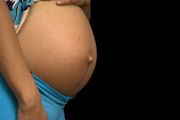
The Mayo Clinic defines ectopic pregnancy as when a fertilized egg implants itself somewhere other than the lining of the uterus. Of course, the fertilized egg cannot survive this way and may possibly cause damage to the reproductive organs. In extreme cases, this type of pregnancy can even cause death due to excessive blood loss.
Symptoms
When early signs appear in ectopic pregnancies, usually signs are identical to a normal pregnancy – missed period, nausea and fatigue. When taking a pregnancy test, it will even test positive. However, in most cases, this type of pregnancy does not have early signs or symptoms at all. The signs come later when there is:
Light vaginal bleeding
Lower abdominal pain
Cramping on one side of the pelvis
If the fallopian tube ruptures, symptoms may include:
Sharp, stabbing pain in the pelvis, abdomen, or even the shoulder and neck
Dizziness
Lightheadedness
The Mayo Clinic recommends calling 911 for emergency help when your symptoms have escalated to:
Severe abdominal pain
Heavy vaginal bleeding
Shoulder pain
A strong urge to defecate without results
Extreme lightheadedness, fainting or shock
So where does this fertilized egg land? Interestingly enough, it can implant several different places. The first being the fallopian tube – this is the organ that acts as a channel to the uterus. But then, there are rare cases where implantation happens in the abdomen, the ovary or the cervix (neck of the uterus).
What causes this condition? There are several reasons why an ectopic pregnancy may occur. Many times, it’s because the fallopian tube itself has a lot of scar tissue or is damaged. As a result, the egg cannot pass to the uterus. But what increases the risk of an ectopic pregnancy even more so is if a person has had:
A previous ectopic pregnancy
Inflammation or infection – this has been found to be a major risk factor. Women who have inflammation of the tubes, PID (pelvic inflammatory disease), any STD or even endometriosis are in danger of an ectopic pregnancy
Fertility problems – fertilization medications increase your risk
Structural problems of your reproductive organs – this is especially true if the fallopian tubes are damaged
Use of birth control pills or IUD – if pregnancy occurs when using birth control pills or an IUD, the risk increases for an ectopic pregnancy
What can be done? Doctors will perform the necessary tests before concluding what your problems is. Once an ectopic pregnancy is found, the fertilized egg has to be removed. It cannot survive outside of the womb and can cause permanent damage to your reproductive organs if left undisturbed. So depending on how early or advanced the pregnancy is, doctors can use a drug injection or surgery to remove the fertilized egg.
Resource: Mayo Clinic
Dita Faulkner is a freelance writer who is saddened by the senseless death of one of the former Memphis Grizzlies’ players, Lorezen Wright. I wish his family peace at this time.





Add a CommentComments
There are no comments yet. Be the first one and get the conversation started!